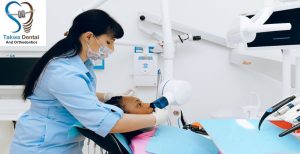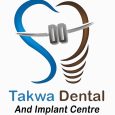
Maintaining good oral health is vital for a healthy smile and overall well-being. While regular dental check-ups are important, there are various effective strategies you can employ to take care of your teeth without the immediate availability of a dentist. In this comprehensive guide, we will explore a range of practices and habits that can help you maintain optimal oral hygiene and prevent dental issues.
Brushing Techniques
Proper brushing technique forms the cornerstone of good oral hygiene. Use a soft-bristle toothbrush and fluoride toothpaste to brush your teeth at least twice a day, preferably after meals. Adopt a gentle, circular motion and ensure you reach all areas of your mouth, including the front, back, and chewing surfaces of your teeth. Pay attention to your gum line and tongue as well. Brushing for a minimum of two minutes helps effectively remove plaque and bacteria from your teeth.
Flossing Regularly
Flossing is a crucial step often overlooked in oral care routines. It helps remove plaque and food particles from between your teeth and along the gumline. Take about 18 inches of dental floss and wrap most of it around your middle fingers, leaving an inch or two to work with. Gently glide the floss between your teeth, forming a C-shape around each tooth and moving it up and down. Be careful not to snap the floss, as it may cause gum irritation. Aim to floss at least once a day, preferably before brushing.
Mouthwash
Mouthwash can provide an additional layer of protection against bacteria and freshen your breath. Opt for an antimicrobial mouthwash containing fluoride. After brushing and flossing, swish the mouthwash around your mouth for 30-60 seconds. However, it’s important to note that mouthwash should not replace brushing or flossing but should be used as a supplementary addition to your oral care routine.
Healthy Diet
Your diet plays a significant role in maintaining oral health. Limit your consumption of sugary and acidic foods and beverages, as they can contribute to tooth decay and erosion. Instead, opt for a balanced diet rich in fruits, vegetables, whole grains, lean proteins, and dairy products. These foods provide essential nutrients that strengthen teeth and promote gum health.
Limit Harmful Habits
Certain habits can harm your teeth and should be avoided. Tobacco use, in any form, significantly increases the risk of gum disease, oral cancer, and tooth loss. Additionally, excessive alcohol consumption can lead to dry mouth and tooth erosion. If you have a habit of teeth grinding (bruxism), consider using a mouthguard at night to protect your teeth from damage.
Maintain Hydration and Saliva Production
Staying hydrated is crucial for maintaining oral health. Drink plenty of water throughout the day to keep your mouth moist and stimulate saliva production. Saliva helps neutralize acids, wash away food particles, and protect your teeth from decay. Chewing sugar-free gum can also increase saliva flow and freshen your breath.
Natural Remedies for Temporary Relief
In situations where immediate access to a dentist is unavailable, natural remedies may provide temporary relief for dental discomfort. Rinsing your mouth with warm salt water can help alleviate gum inflammation and reduce bacterial growth. Applying a small amount of clove oil to a toothache or using a cold compress on your cheek can help alleviate pain. However, it is crucial to remember that these remedies are not substitutes for professional dental care and should only be used as temporary measures until you can consult a dentist.
Regular Self-Examination
Performing regular self-examinations allows you to monitor the health of your teeth and gums. Look for signs of gum inflammation, such as redness, swelling, or bleeding. Check for any changes in the color, texture, or sensitivity of your teeth. If you notice any abnormalities or persistent pain, consult a dentist promptly.
Conclusion
While regular visits to the dentist are essential for optimal oral health, taking care of your teeth without immediate access to professional dental care is feasible. By implementing a consistent oral hygiene routine, adopting healthy habits, and seeking temporary relief through natural remedies, you can maintain good oral health and minimize the risk of dental problems. However, it is important to emphasize that these practices are not substitutes for professional dental care, and if possible, regular visits to a dentist should be scheduled to ensure long-term oral health.












